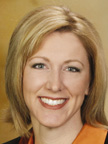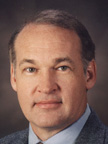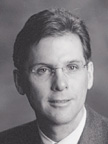RELATED CONTENT

NEW YORK--The eyecare practitioner's position in--and share of--the eyecare/eyewear marketplace is changing. Expansion of optical chains, mass merchandisers' entering optical, technological innovations such as laser vision correction and, perhaps most strongly, the surge in managed vision care have altered ECPs' roles in eyecare delivery.
Managing Managed Vision
The growth of managed vision care may be the biggest change--and greatest challenge--for independents in the last two decades. And ECPs have decidedly mixed opinions on its impact on their practices and patients.
'Managed care is our friend--and perceived foe,' said Barbara Horn, OD, of ExpertEyes in Washington, Mich. Horn sees "obvious benefits and disadvantages financially' to participating in managed-vision programs. "Newer practices will be forced to take managed care plans to get patients in the door,' she said. "More-established practices may have a better chance at discontinuing the plans that really hurt the bottom line.'
 |
| Barbara Horn, OD |
In terms of caring for consumers' vision, "while insurance plans may help people get much-needed eye-health checks, the opposite mentality is often seen from uninsured people: "I don't have insurance so I can't get an exam or glasses." That is a dangerous mind-set," Horn said. "People feel if they aren't insured, they shouldn't get an exam, or shouldn't correct their vision."
Sandra Bury, OD, of Complete Vision Care in Oak Lawn, Ill., agrees: "Managed care is the 800-pound gorilla, driving patient behavior so profoundly it frightens me. Patients have a great amount of anxiety over going out of their plan for anything, be it a red eye or a broken frame--I regularly see patients go without treatment or glasses until the insurance kicks in again."
 |
| Sandra Bury, OD |
However, Bury added, "Managed care ensures that my patients return year after year, and drives new patients to my practice. I doubt we could survive without it."
Randy Fincher, OD, a private practitioner in Colorado, said, "Managed vision care has evolved from two percent of my practice in 1971 to 60 percent today. How financially rewarding it is is all in the way you manage the plans and the resulting patients. The problem is, most ODs join plans as a "knee-jerk" reaction, and never read the contracts or calculate a plan"s costs and benefits. My advice is to calculate your chair cost, take time to read the contract and make a "business decision" before signing."
 |
| Randy Fincher, OD |
 |
| Dave Ziegler, OD |
Noted Dave Ziegler, OD, of Ziegler-Leffingwell Eyecare in West Allis, Wis., "Managed care can put people in your chair, but do you really want those patients? By evaluating your chair cost--the amount of fixed overhead to see a single patient--you may choose not to be on many plans. You add staff and office space to accommodate the constant flow of managed care patients, but you make so little money it may not be worth it."
Scope of Practice
Some optometrists have stepped back a bit from the competitive dispensing arena to emphasize the "medical" side of their profession; others maintain a focus on dispensing if it remains profitable. And all ECPs are seeing a trend toward greater specialization among their peers.
Horn sees these changes as "a natural progression in treating our patients more efficiently and cost-effectively."
She noted, 'the shift toward diagnosis and management of eye disease is beneficial for patients, optometrists and insurance companies, as treating the patients you currently have a history with saves on costs of a referral for all involved."
 |
| Kirk Smick, OD |
Kirk Smick, OD, of Clayton Eye Center in Morrow, Ga., also sees this as a positive trend: 'to maintain a steady flow of both patients and cash, we've expanded the services we provide to our patients. Our reliance on our dispensary, although still important, has become less; following chronic medical conditions such as glaucoma and dry eye provides an ongoing revenue stream."
 |
| Kristine Eng, OD |
Kristine Eng, OD, of Orinda Optometry Group in Orinda, Calif., agreed. "My practice has seen a large shift from seeing patients for annual "routine" eye examinations to more problem-focused exams. Every day I prescribe medications, discuss systemic diseases with patients and interact with the larger medical community by co-managing and referring/consulting with other specialists to provide optimum care."